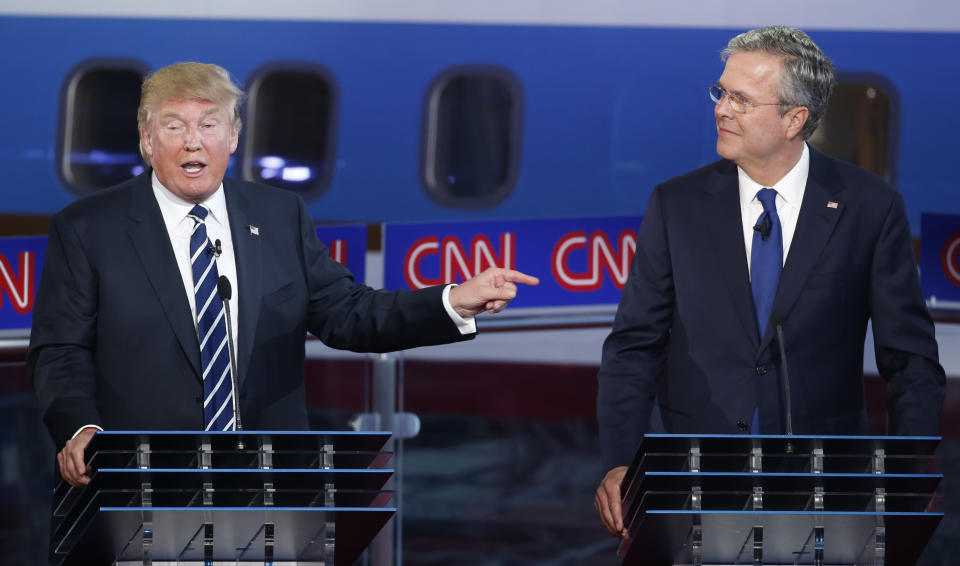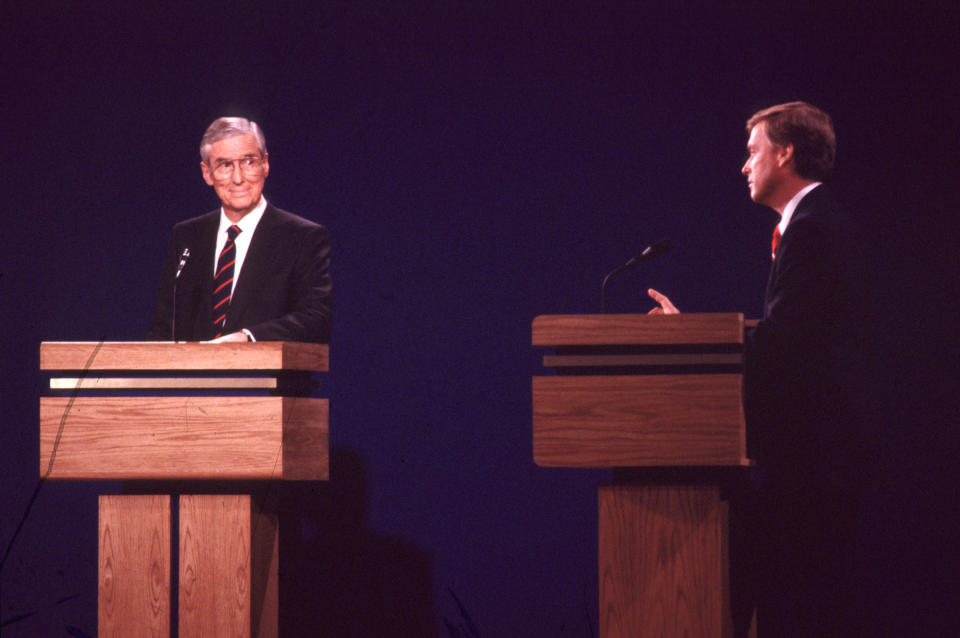Democrats are ready to throw punches but vow debate won't become 'crazytown'

MIAMI — For the past several months, the approximately two dozen Democratic presidential candidates have crisscrossed the country visiting key early states and introducing themselves to voters. As they move past this introductory phase of the primary, the candidates have begun to turn toward each other and fire their first shots.
With the race heating up and the first pair of debates set to begin Wednesday night, Democrats are eyeing each other warily and ready for rivals to throw jabs or even the dreaded debate-stage “sucker punch.”
Multiple sources working for the leading campaigns expressed fears that some of the more long-shot candidates could try to make a splash by going after one of their fellow Democratic opponents.
“I’m waiting for someone to tear off his shirt. ... Seriously, I bet a couple of the ones in back will try to go after people, but I don’t think it’s going to be crazytown,” a top adviser for one of the candidates said. “These debates actually get much more intense when it’s fewer people. It’s so diffuse it’s hard to really lay a glove on somebody.”
But even though some aides expect sparks to fly, Democrats insist their debates won’t involve the kind of name-calling and personal attacks that Donald Trump made into a feature of the Republican primary in 2016. The top adviser said their candidate would “compare and contrast” while keeping the conversation focused on policy.

Xochitl Hinojosa, communications director for the Democratic National Committee, said she expected the debates — and any disagreements onstage — to “be focused on the issues.”
“Candidates will discuss their ideas for America — and might address each other’s records — but you won’t hear them name-calling or talking about hand size the same way you saw with the Republicans in 2016,” Hinojosa said.
Former Maryland Rep. John Delaney, who is polling near the bottom of the field, indicated that he does plan to make policy critiques of other candidates Wednesday night, but also predicted that any disputes within the group will largely be polite.
“I’m not sure what to expect. I mean, if you look back, historically, Democratic primary debates have been relatively civil affairs, compared to Republican ones,” Delaney said, adding, “I have no problem saying that Medicare for All is political suicide for us to run on this.”
An aide to one of the Democratic campaigns similarly said their candidate will keep rhetorical punches focused on the issues.
“There’s a difference between critiquing people and critiquing their policies. We plan on critiquing candidates’ policies,” the aide said.
A source close to entrepreneur Andrew Yang’s campaign also acknowledged the potential for some (limited) scuffling.
“I think it’s probably to be expected. Maybe ‘mudslinging’ is too harsh of a word. ‘Elbowing’ is probably a better term,” the source said.
However, that source stressed that Yang would take the high road Thursday night.
“Other candidates on the debate stage have to plan breakout moments or jabs to try and stand out from the crowd, but the fact is that Andrew’s platform and his solutions are what makes him stand out. Andrew doesn’t need prepackaged one-liners,” said the source.

Even if the conversation stays in the realm of policy, there’s still room for fireworks. Last week multiple candidates pointedly criticized the frontrunner, former Vice President Joe Biden, for comments he made touting his experiences working cooperatively with racist members of the Senate decades ago.
However, multiple sources stressed that going on the offensive during the debates could backfire — even for a candidate who is struggling in the polls and in dire need of visibility.
“Lower-tier candidates could punch up, which could prove a risk for them,” a staffer for one of the campaigns said.
The source close to Yang’s campaign added: “Going after someone else onstage may win a headline, but I’m not convinced it will win over many voters.”
Another Democratic campaign staffer pointed to the 2016 primary election, in which former Maryland Gov. Martin O’Malley seemed lost in the shuffle after a debate where he “didn’t have his moment because he didn’t come out and sucker-punch [frontrunner Hillary Clinton].” O’Malley tried being much more forceful in a subsequent debate, and his performance drew negative reviews.
“If you’re setting this expectation that you need to go after someone, if you take your shot, you better hit,” the staffer said. “People need to be super-careful with how they’re setting themselves up.”
Indeed, some of the most memorable and dramatic debate-stage attacks didn’t translate into wins in past elections. One of the most memorable one-liners in the history of modern debates came in 1988 when Texas Democratic Sen. Lloyd Bentsen told Republican vice presidential nominee Dan Quayle, “You’re no Jack Kennedy.” The exchange has been described as “iconic,” but it was Quayle and his running mate, Vice President George H.W. Bush, who went on to the White House. In the 2016 race, New Jersey Gov. Chris Christie was widely credited with scoring a “takedown” against Florida Sen. Marco Rubio during one of the Republican debates. Christie’s vicious mocking as Rubio sputtered and repeated a prepared line may have hurt his rival, but Christie still flamed out early.

As the Democrats keep a wary watch on potential debate-stage attacks from their rivals and weigh how hard their own punches should be, Republicans are hoping to capitalize on Democratic infighting.
“We’re going to keep our powder dry and let the Democrats do the hatchet jobs for us,” the communications director of a leading Trump super-PAC, America First Action, told Yahoo News in May.
And a Republican source was positively gleeful about the prospect of Trump’s potential rivals facing off onstage.
“Democrats beating up on each other in primetime for the next two nights will be the best ad for President Trump’s reelection. The 20 people vying for one spot seem ready to take the gloves off and try to land punches on each other to get a headline,” the source said. “As a Republican, this is going to be some good television watching.”

Read more from Yahoo News:


